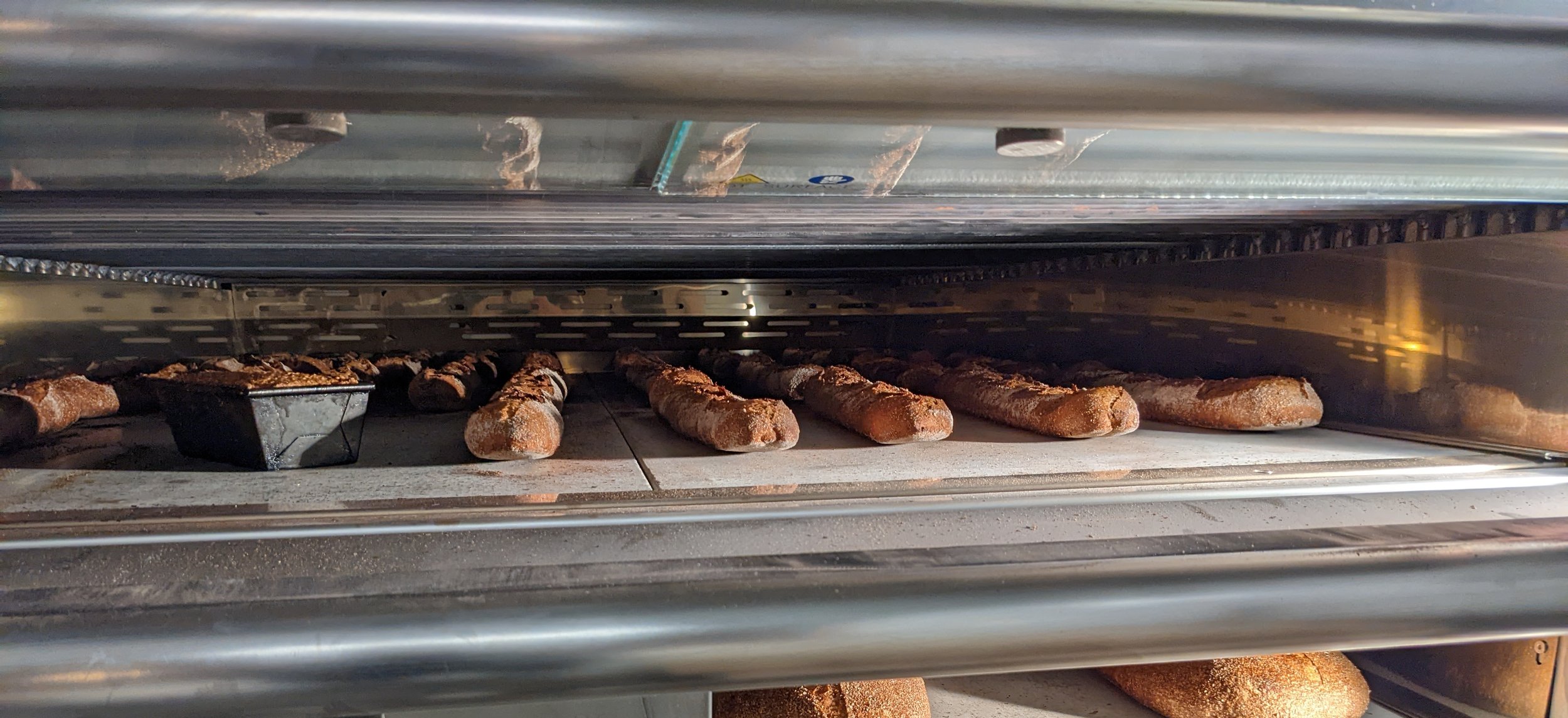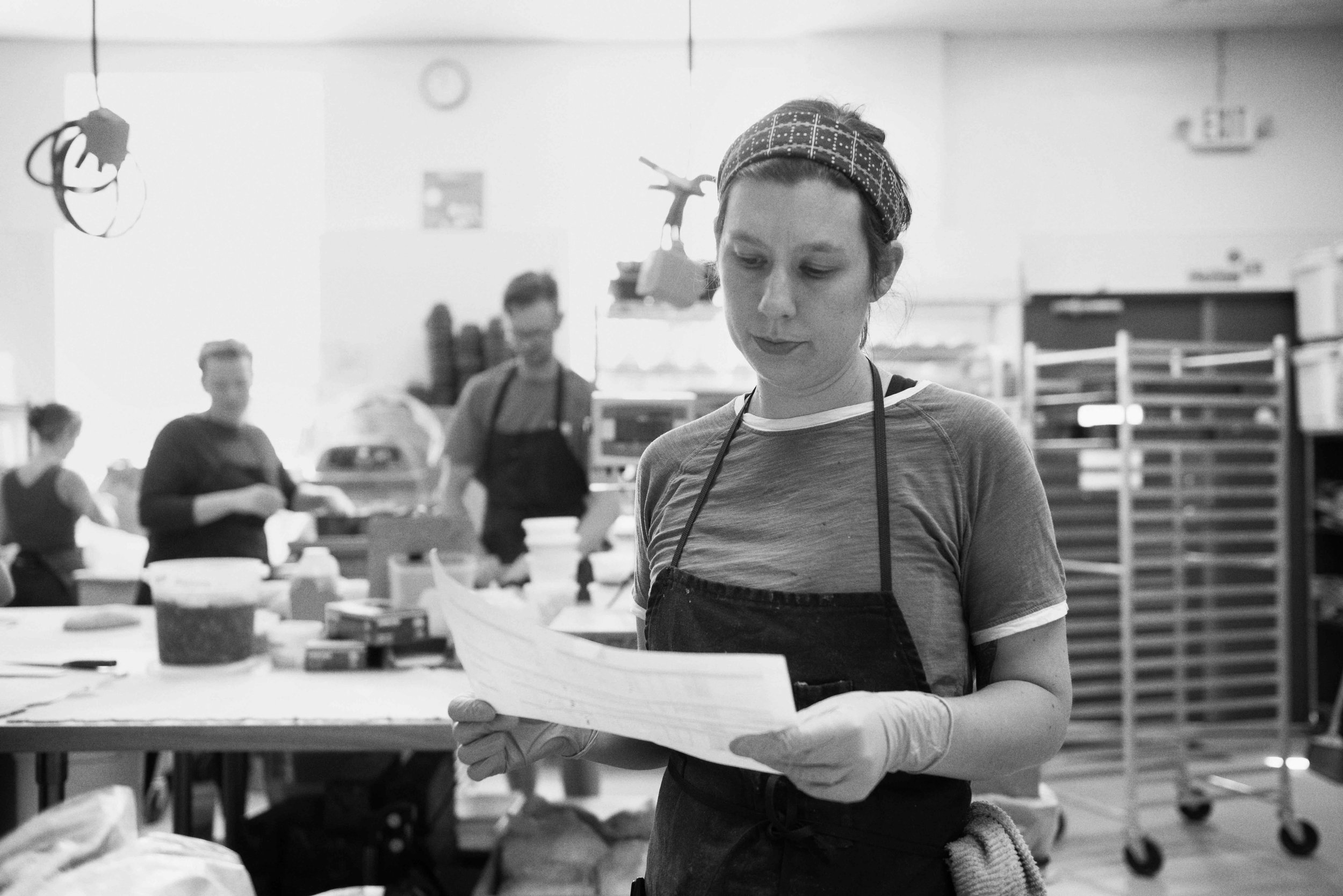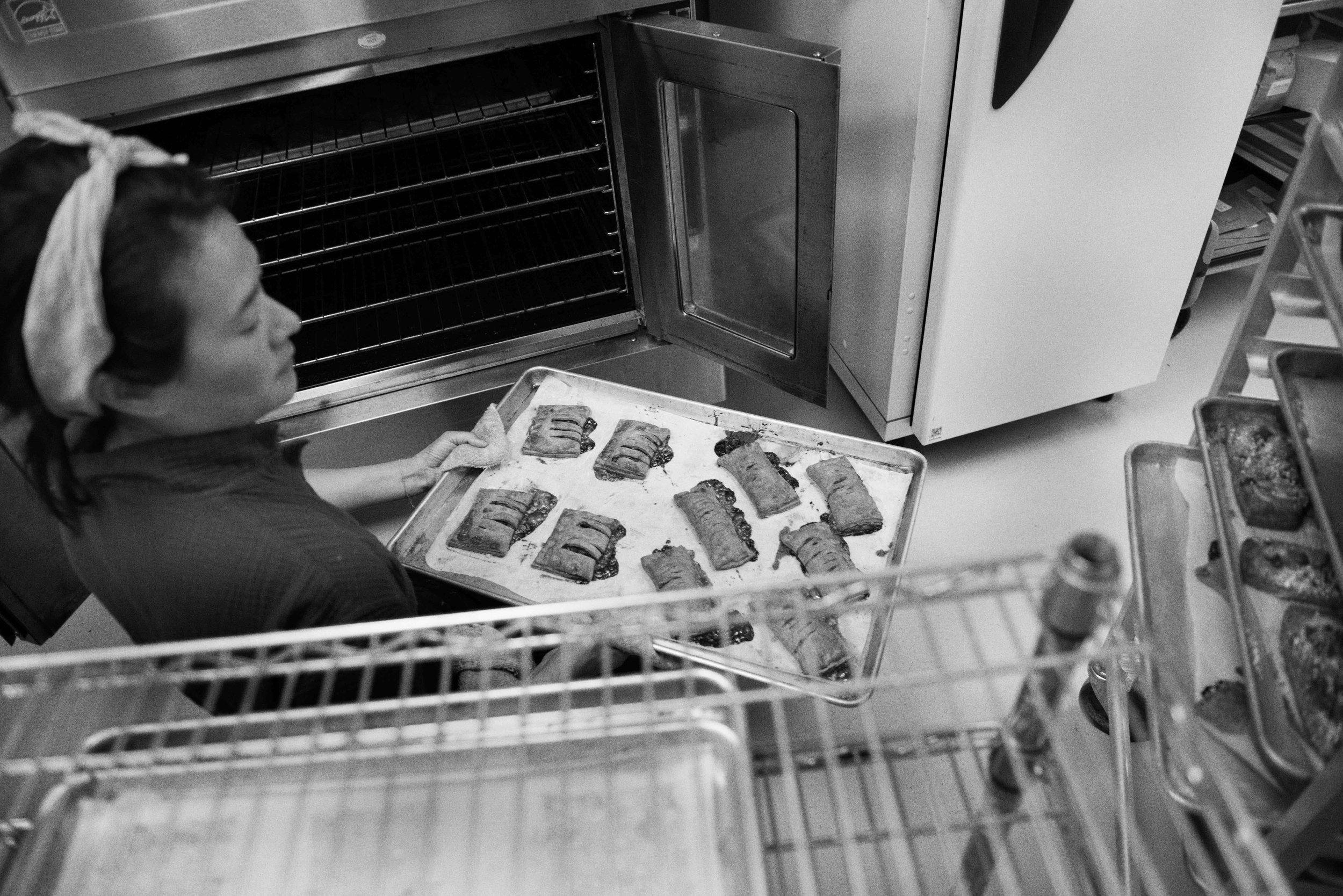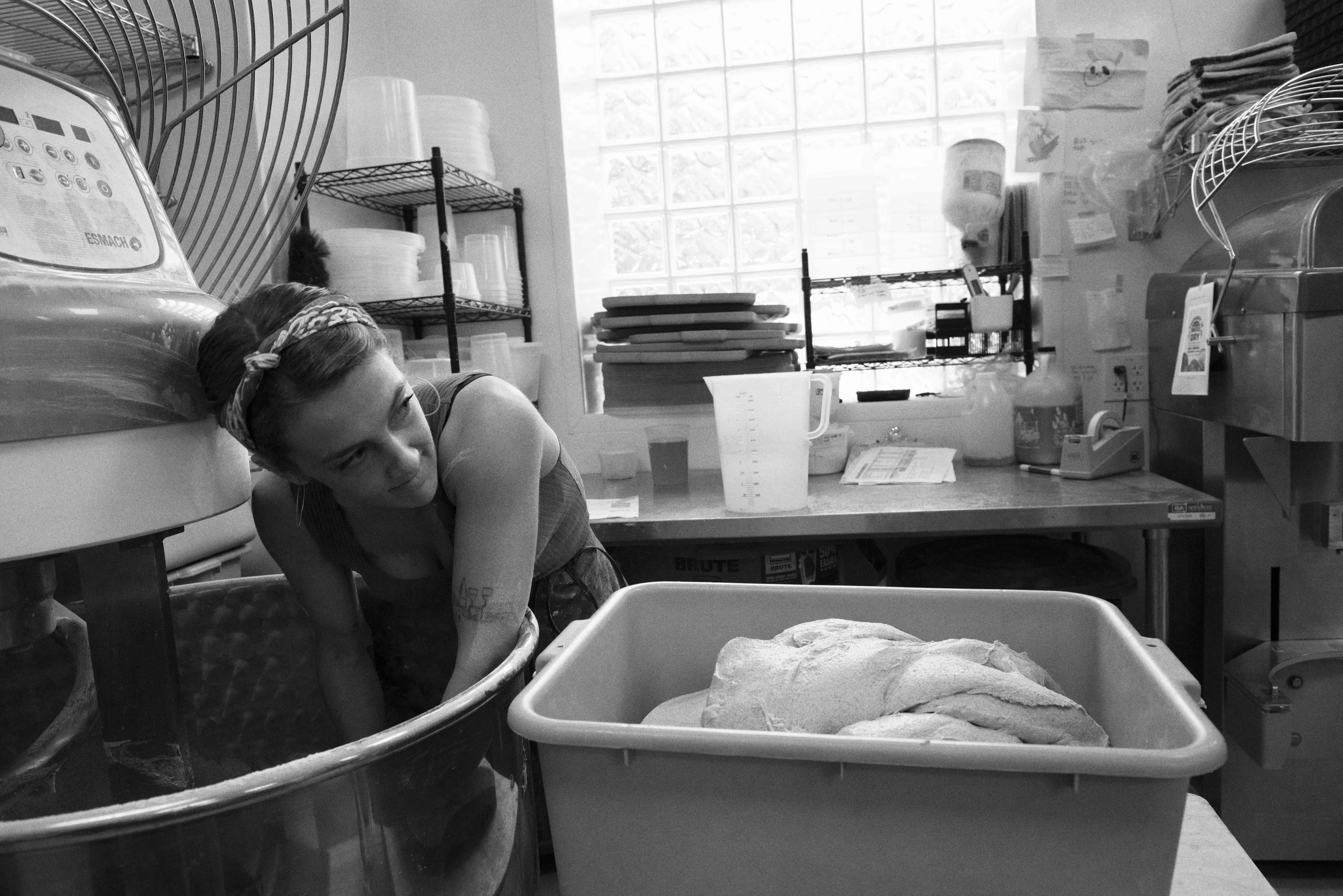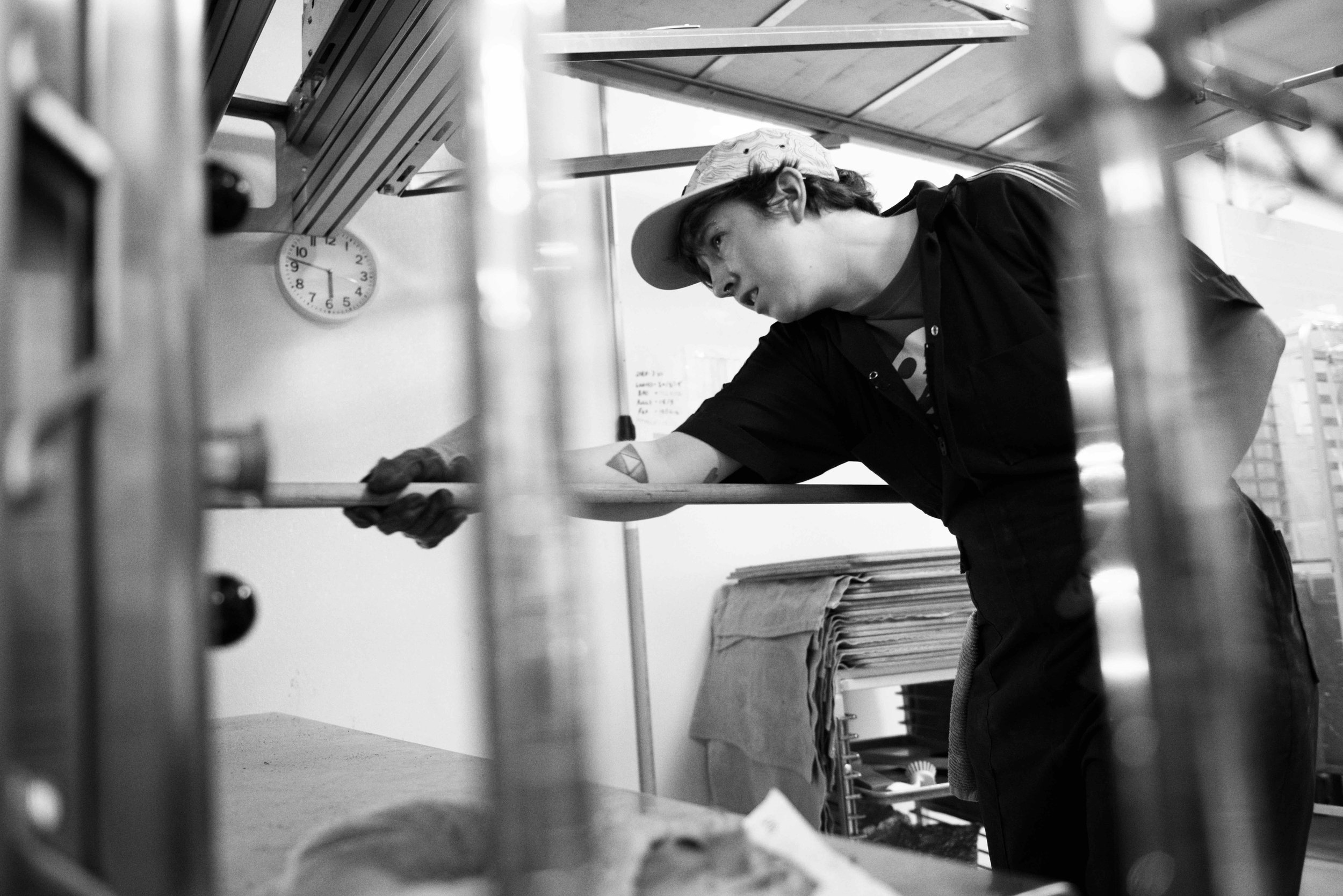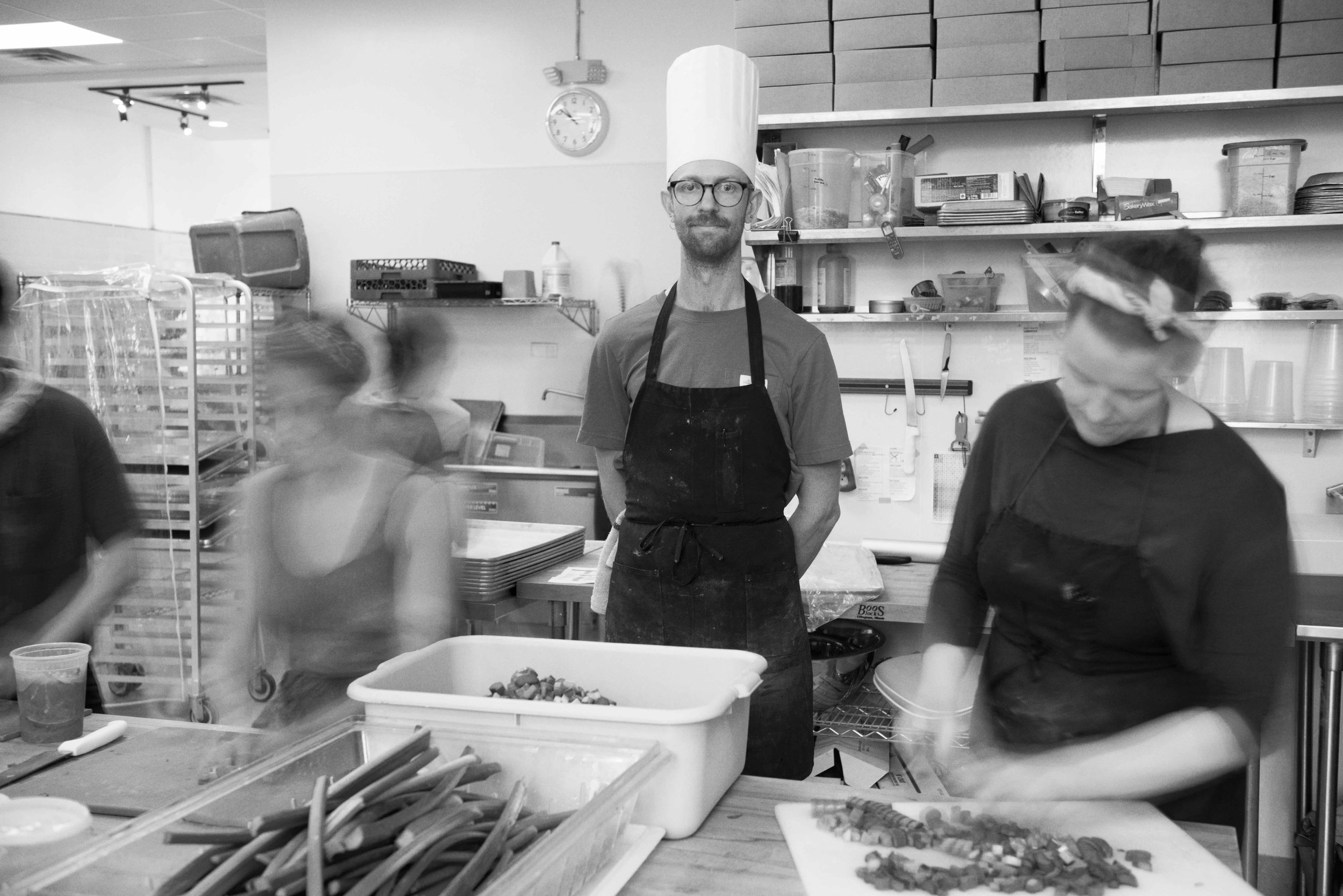LAUNE Bread is a subscription and market bakery dedicated to seasonality, simplicity, and the intersection the farm and the city. We bake European & West Coast American inspired naturally leavened breads, pastries & cookies. We are committed to reducing waste, pursuing whole grains, and sourcing ingredients from Minnesota + Upper Midwest farmers and producers with earth friendly farming practices.
Our bread is naturally leavened with a sourdough culture. Our breads incorporate >65% whole grain flour for flavor, digestibility, and numerous health benefits. By mixing our dough with a high level of water, we are able to make dense bread that doesn’t taste dense. By using a large percentage of whole grains and a sourdough culture of yeasts and bacteria, we are able to offer a delicious bread with many beneficial qualities.
The backbone of Laune Bread is steadfast while our daily endeavors reflect whimsical ease and influence. Heavily rooted in the traditional German idea of Brotzeit (bread time), our goal is to have bread at hand to go with any meal, or as a meal in itself. There is a rich tradition found in every great bakery, with breads sharing a history with the region that produces them. Our goal is to reintroduce good bread into the heart of the meal using ingredients and inspiration that are from near, not far. Our breads often pay homage to breads we have experienced or learned of across the country and globe. Nothing is *new.* It is simply revisited to fit our methodology.
We do not rush our breads. We work in concert with the bacteria and yeast cultivated from the wheat, water, air, and our hands to reflect the Minneapolis terroir. We honor the skills of time past while looking towards the future of innovation.
In January 2022, we opened our storefront on East Lake Street, seven years after the inception of Laune Bread.
Chris MacLeod began Laune Bread in 2015 as a bike delivered subscription micro-bakery. He realized that working solo was not for him, closed shop in 2017, and moved to Switzerland. Returning to Minnesota in 2019, Chris turned the oven back on with the addition of Tiff Singh.
Raised in northern California, Chris discovered bread while living abroad as a student in Munich. Not anticipating a career in baking, Chris studied Rhetoric and German at Lewis & Clark College, in Portland, OR. Only as a form of procrastination did his baking grow.
As befits an accidental baker, Chris’s technique and values are rooted in his travels and mentors, found in idyllic Pt. Reyes Station, CA, Portland, OR, Minneapolis, MN, Utrecht, Munich, rural Germany, and Basel + Bern, Switzerland.
Tiff Singh's first baking job was at her local coffee shop and cafe in St. Peter, MN, a base that sparked her interest in cooking and baking. The skills she developed there led her to seek more mentors in the Minneapolis baking community (from the likes of Sun Street Breads, Rustica and Restaurant Alma).
Baking has remained a focal point in Tiff’s life both inside and outside of work, a mainstay through times of challenge and growth, a source of joy and respite. The seasonal whim of our menu offerings is influenced by Tiff’s inspiration of food, human connection and community.
How to store bread:
We recommend keeping your bread covered on your counter in the bread bag or with a cloth, rather than in the fridge or a plastic bag. We place our loaves cut side down, so that the crumb isn't exposed to air, while the crust slowly stales.* In a sealed plastic bag, the crust will soften, as the moisture from the bread has nowhere to go, eventually leading to a moldy loaf. For a day or two, this is okay, but not too long!
If you don't expect to finish your loaf before it stales, freeze it in a plastic bag. Slice it first if you want, to make toasting ever more convenient.
Revive your stale loaf in the oven at 175°F for 15-20 minutes.
*Technical note: Staling has nothing to due with water loss, as bread actually only loses about 1% of water content as it ages. Rather, the gelatinized starch molecules form into crystalline regions, causing a tightening effect on the bread. By reheating it, you can temporarily disrupt the less stable regions of the chains comprising the starch molecules.

